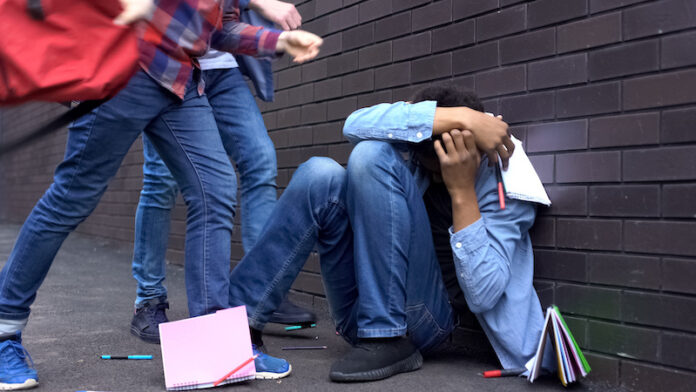Tough discipline is making a comeback this year after decades of efforts by educators and student advocates to dismantle the long-lamented school-to-prison pipeline with restorative justice and other more equitable approaches.
Reams of research have found that zero-tolerance discipline policies disproportionately harm students of color and that out-of-school suspensions often fail to correct misbehavior. For instance, one study found that only 12% of principals agreed that suspensions and expulsions give students time to reflect on or learn from their misbehavior.
But a rise in violence and other behavioral problems since the pandemic is fueling a push to bring back move punitive punishments in some states and districts. In Nevada, the state teachers union is backing two new discipline bills, including one that repeals a requirement to use restorative practices before a student is suspended or expelled. A second measure would allow schools to suspend or expel a student of any age who assaults a school employee.
“We believe a strong restorative discipline system could reduce incidents where educators sustain injuries,” the Nevada State Education Association said in a statement. “However, this system would need to be proactive, implemented district-wide across all districts, and would require significantly more training, attention, and resources.”
Where tough discipline is returning
Here’s a look at newly enacted laws and bills being considered in several states:
Arizona: Sets guidelines for suspending students in grades K-4.
Kentucky: New law requires school boards to expel for at 12 months any students who threaten or pose a danger to classmates or staff. Schools can also suspend disruptive students who are removed from class three times in a 30-day period. Principals can transfer disruptive students to alternative education programs.
Nebraska: Educators could physically contact or restrain disruptive students and remove them from class.
North Carolina: More behaviors would be added to what schools could consider “a serious violation,” including the use of inappropriate or disrespectful language, noncompliance with a staff directive, dress code violations, and minor physical altercations that do not involve weapons or injury.
More from DA: How an onslaught of social media threats is disrupting and terrorizing schools
Even such “minor violations” can make classrooms dangerous, Republican North Carolina state Rep. Ken Fontenot, told the EdNC website. “Dress code violations. It is probably serious if a young lady is exposing herself in a way that is not good for her or the male students or vice versa,” Fontenot said. “A minor physical altercation. Who’s to say what is minor if your bully is 6-foot-3 and you happen to be 4-foot-5?”
West Virginia: Black students are being disproportionately suspended compared to their white and Hispanic classmates, according to a report presented to the state’s board of education this week. One-fifth of the state’s Black students were suspended in the 2021-22 school year compared to just 10% of white students and 10% of Hispanic students. While Black children represent 4% of the state’s student population, they accounted for 8% of all suspensions
Students from low-income households were also suspended at twice the rate of other students in West Virginia. Still, state lawmakers are working to codify educators’ power to remove students from classrooms. The latest proposal would allow teachers to exclude students “guilty of disorderly conduct” or who, in any manner, interfere with instruction. Students face suspension after they’ve been removed three times but the bill prohibits students from being suspended for missing class.










